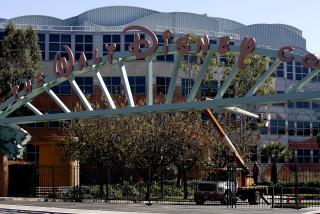Merger Opponent on HP’s Board Explains 1st Vote
- Share via
SAN JOSE — The Hewlett-Packard Co. board member leading the fight against the firm’s $22-billion plan to buy Compaq Computer Corp. said in a filing Thursday that he originally voted for the deal only to help HP get a good price.
After blasting the deal for two months, Walter Hewlett gave the Securities and Exchange Commission a preliminary copy of the proxy statement he will use to ask shareholders to vote against the plan. HP and Compaq already have filed their version seeking votes of approval.
Hewlett, oldest son of late HP co-founder William Hewlett, said he first heard Chairwoman and Chief Executive Carly Fiorina was negotiating a deal with Compaq in May and voiced concern about it at board meetings over the few months that followed.
Negotiations with Compaq went on, however, and on Aug. 31, HP attorney Larry Sonsini told the board that the terms being finalized required the directors’ unanimous support. Hewlett said he told the board he was in a tough spot because he was not convinced the acquisition was good.
According to Hewlett’s filing, Sonsini asked Hewlett to step outside the board meeting, and told him HP would go ahead with the acquisition whether or not Hewlett went along. However, he said, Hewlett’s opposition could force HP to renegotiate the terms and possibly pay more for Compaq.
Hewlett said Sonsini told him he could approve the deal as a board member and vote against it as a shareholder. Hewlett agreed, deciding he should do all he could to help HP negotiate the best possible price--even for a deal he opposed.
Despite joining in the unanimous support for the deal, Hewlett said he reminded his fellow board members hours before it was announced Sept. 3 that he likely would vote his shares against it.
Sonsini and HP representatives did not immediately return calls Thursday seeking comment.
HP and Compaq believe merging would make them a leader in key technology segments, improve their offerings for corporate customers and speed their pace of innovation. The companies are awaiting regulatory approval before setting a date for a shareholder vote.
Hewlett believes the deal is too risky, would increase HP’s reliance on the weak personal computer business and dilute the contribution of HP’s profitable printing unit. He said his opinion has been bolstered by the negative reaction from many analysts and investors.
“To undertake the proposed merger is to make a big, long-term, bet-the-company move,” Hewlett’s filing says. “We would prefer HP to focus on what it does well, and to change and grow organically, with targeted tactical acquisitions, which has been the strategy of most successful technology companies.”
The opposition camp includes Hewlett and Packard family interests with 18% of HP stock, including the Packard family charitable foundation, which is HP’s largest shareholder; and an independent stock committee of the Hewlett family foundation.
HP shares fell 10 cents to $20.80, while Compaq’s rose 15 cents to $9.93, both on the New York Stock Exchange.






